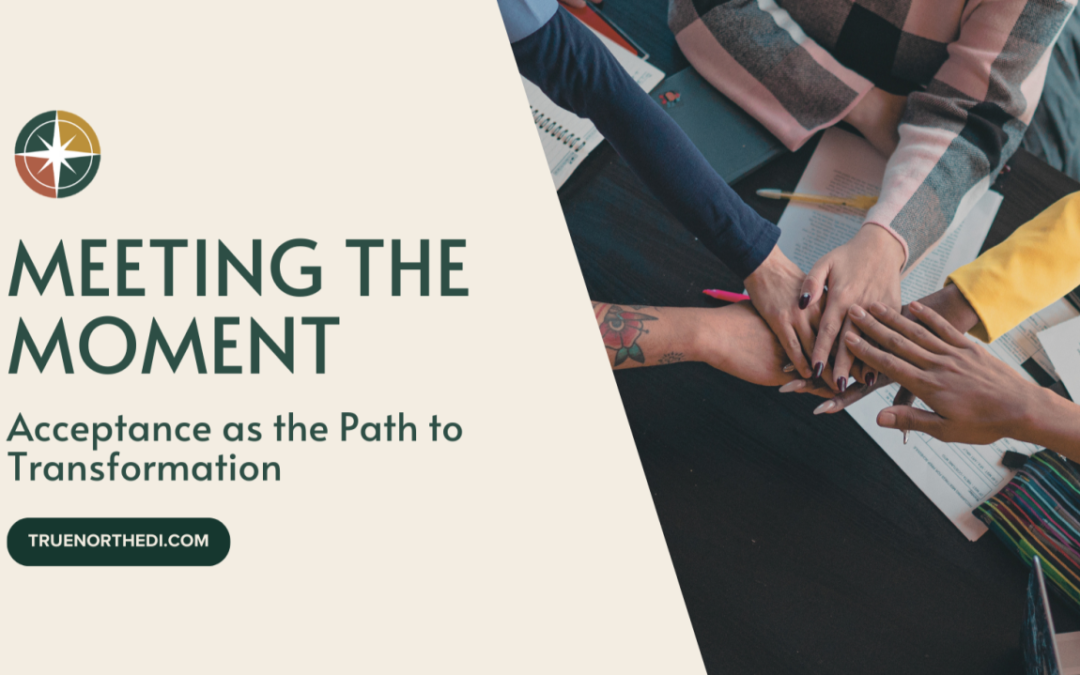I’ve been grappling for the last month and a half with the nature of what shouldn’t be. This shouldn’t be our country’s leadership. I shouldn’t have to do important work in quiet. Human beings shouldn’t have to feel erased. No one should be born into a world where they have fewer rights than the generation before them.
But today, in this moment, I’m understanding that acceptance is a precondition for transformation.
When I say acceptance, I don’t mean condoning, supporting, or advocating for injustice. I mean accepting the truth and reality of what is and what is not. Because I cannot build meaningful solutions if I refuse to clearly see the problem in front of me.
In coaching relationships, I often remind those I work with that while some challenges should not exist, it doesn’t change the fact that they do. And so, transformation begins not by willing the world into what it should be, but by acknowledging what is—and then building responsive action to create something more just, more humane, more livable.
Fugitive Pedagogy and the Lineage of Resistance
I was introduced to the work of Jarvis Givens by my friend and True North EDI consultant, Cathleen Antoine-Abiala, and it has given me a deeper framework for understanding the moment we are in. In Fugitive Pedagogy, Givens reminds us that Black educators historically carried out liberatory teaching under the surveillance of systems designed to suppress it. Their work—what he calls “a covert but public act”—was an act of strategic resistance. He writes:
“Black teachers’ practices were always conditioned by the looming threat of punishment, but within those constraints, they found ways to sustain and enact an alternative vision of education.” (Fugitive Pedagogy: Carter G. Woodson and the Art of Black Teaching, Jarvis R. Givens, 2021, p. 3)
This is the lineage of resistance we inherit today. As efforts to stifle equity work intensify, we are reminded that transformation has never solely relied on permission.

